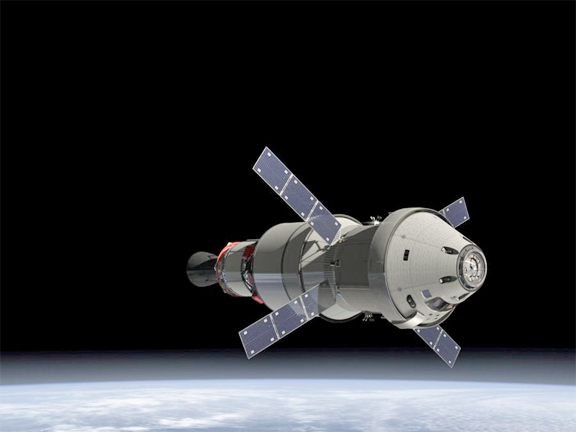[Satnews] Thales Alenia Space has signed a contract with Airbus Defence and Space, the prime contractor for the US space capsule Orion service module, to develop and produce the thermomechanical systems for the European Service Module (ESM) on the Orion spacecraft.
Orion is NASA's new human transportation vehicle for deep space exploration. The Orion service module will be developed under ESA contract and will provide propulsion, power supply, thermal control and main life support capabilities for the American spacecraft.

Artistic rendition of the Orion spacecraft.
Image is courtesy of Thales Alenia Space.
The contract signed by Thales Alenia Space is worth approximately 90 million euros. Thales Alenia Space, a core team member along with Airbus Defence and Space, will develop and supply critical service module systems for the first flight unit, including structure and micrometeoroid protection, thermal control and consumable storage and distribution.
Orion is designed for manned missions beyond LEO, with possible destinations including the Moon, asteroids and deep space. The first Orion mission with European participation, “Exploration Mission 1,” is planned for 2018 and will entail a circumnavigation of the Moon and return to Earth. The aim of this unmanned mission is to demonstrate the spacecraft’s performance capabilities before undertaking manned missions, and also to qualify NASA’s new Space Launch System. The subsequent “Exploration Mission 2,” slated no later than 2021, will send Orion into space with astronauts on board.
Executive Comment
“This contract marks a significant step forward for Thales Alenia Space," said Donato Amoroso, Deputy CEO of Thales Alenia Space. "It also reflects our company's long-standing expertise in human spaceflight. Through the new Orion program, Thales Alenia Space is proud to play a role in extending human presence beyond LEO and contributing to the exciting field of deep space exploration.”



